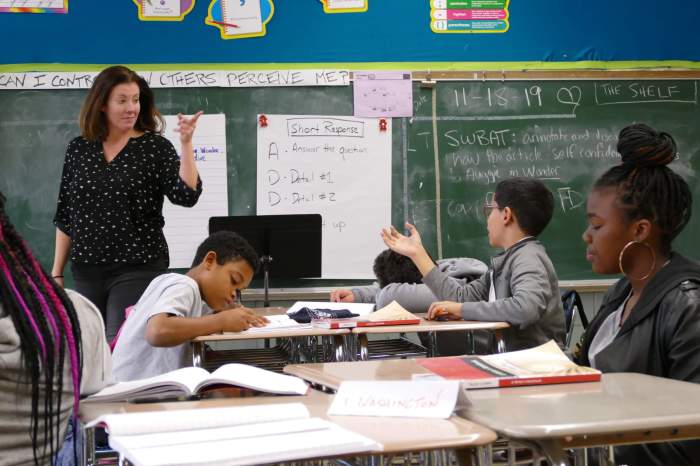Taking action to ensure that more New Yorkers from lower-income backgrounds can earn a college degree is among the most effective steps city and state officials can take to boost economic mobility.
That’s why city leaders were wise to scale up the Accelerated Study in Associate’s Programs (ASAP) initiative at the City University of New York (CUNY), which has become the most effective program in the nation for increasing community college graduation rates.
Now it’s time to do the same for students at CUNY’s four-year colleges by expanding the highly promising but small-scale CUNY Accelerate, Complete, and Engage (ACE) program — and helping thousands more New Yorkers earn bachelors’ degrees.
The problem is that too many of the 93,000 students enrolled full-time in CUNY’s four-year colleges leave school without a degree. Only 36.2 percent of full-time students at CUNY’s senior colleges graduate in four years. For Black and Latinx students, the graduation rate falls to 27.5 percent.
Fortunately, CUNY ACE is beginning to change this. Like the ASAP program for community college students, ACE provides students attending CUNY’s senior colleges with a mix of services and financial help that has proven critical in helping the university’s mostly low-income students to earn a credential: intensive academic advisement, career development, tuition scholarships, textbooks, and transportation assistance.
And it’s working: ACE has boosted graduation rates by over 40 percent at CUNY’s John Jay College. Crucially, the data also suggests that ACE has benefited all subgroups of students, narrowing achievement gaps by ethnicity and race.
New research from the Center for an Urban Future (CUF) documents the strong return of investment ACE produces —helping students save money by completing their degrees more quickly, maximizing the state’s investment in subsidized tuition by boosting completion rates, and strengthening New York’s economy by raising earnings and growing the tax base.
The report also finds that ACE has significant room to expand. The program has served just 2,800 students since it began — only 3 percent of the 93,305 bachelor’s degree — seeking undergraduates enrolled full-time at CUNY’s senior colleges today. By comparison, CUNY ASAP is now serving about 25,000 students each year.
Boosting college degree attainment is essential if New York City is to succeed in building a more equitable economy. The report shows that 61 percent of jobs posted in New York City in 2022 required a bachelor’s degree — and that these jobs offer a median starting salary of $79,800, 86 percent higher than those jobs that require only a high school diploma ($42,900). Moreover, New Yorkers with bachelor’s degrees can expect to earn over $1.1 million more over a lifetime than workers with only a high school diploma.
At the same time, just 22 percent of Latinx New Yorkers, 28 percent of Black New Yorkers, and 45 percent of Asian New Yorkers hold a bachelor’s degree or higher, compared to 62 percent of white New Yorkers.
Recognizing the urgent need to address these disparities, Robin Hood, the city’s largest poverty-fighting organization, working closely with CUNY’s Office of Academic Affairs, seeded funding to launch the ACE program in 2015. Based on the pilot’s remarkable results, Robin Hood continues to provide funds to help replicate the program and remains committed to helping it expand.
However, taking this effective program to scale will require a new level of support from Mayor Adams and the City Council, as well as Governor Hochul and the State Legislature.
City and state leaders should commit to scaling CUNY ACE over the next five years to reach about 30 percent of all full-time senior college students — similar to the share of community college students served by ASAP. City leaders can start by doubling the investment made in last year’s budget to $17 million, enabling the program to double its impact in 2024.
To expand economic mobility and build a more inclusive economy for the long term, few investments will have a greater impact than expanding CUNY ACE.
Eli Dvorkin is editorial and policy director at the Center for an Urban Future. Deborah McCoy is managing director of Robin Hood’s Young Adults Grantmaking Portfolio.





































